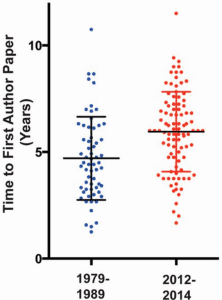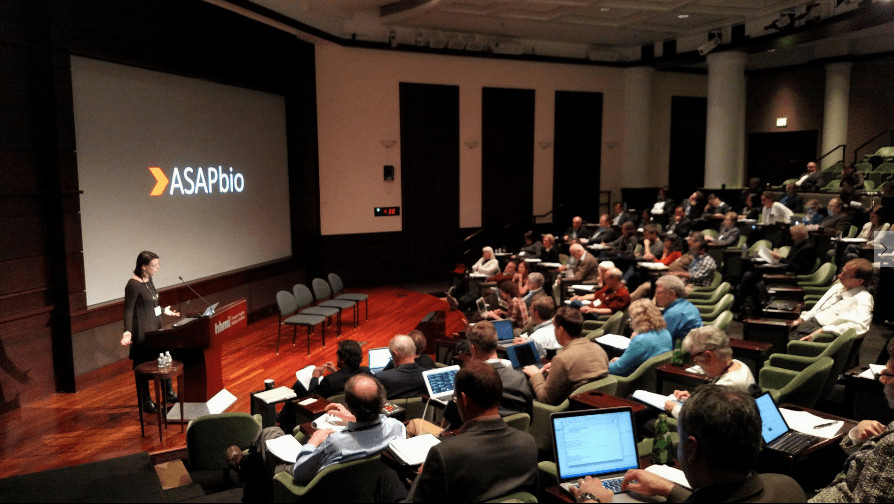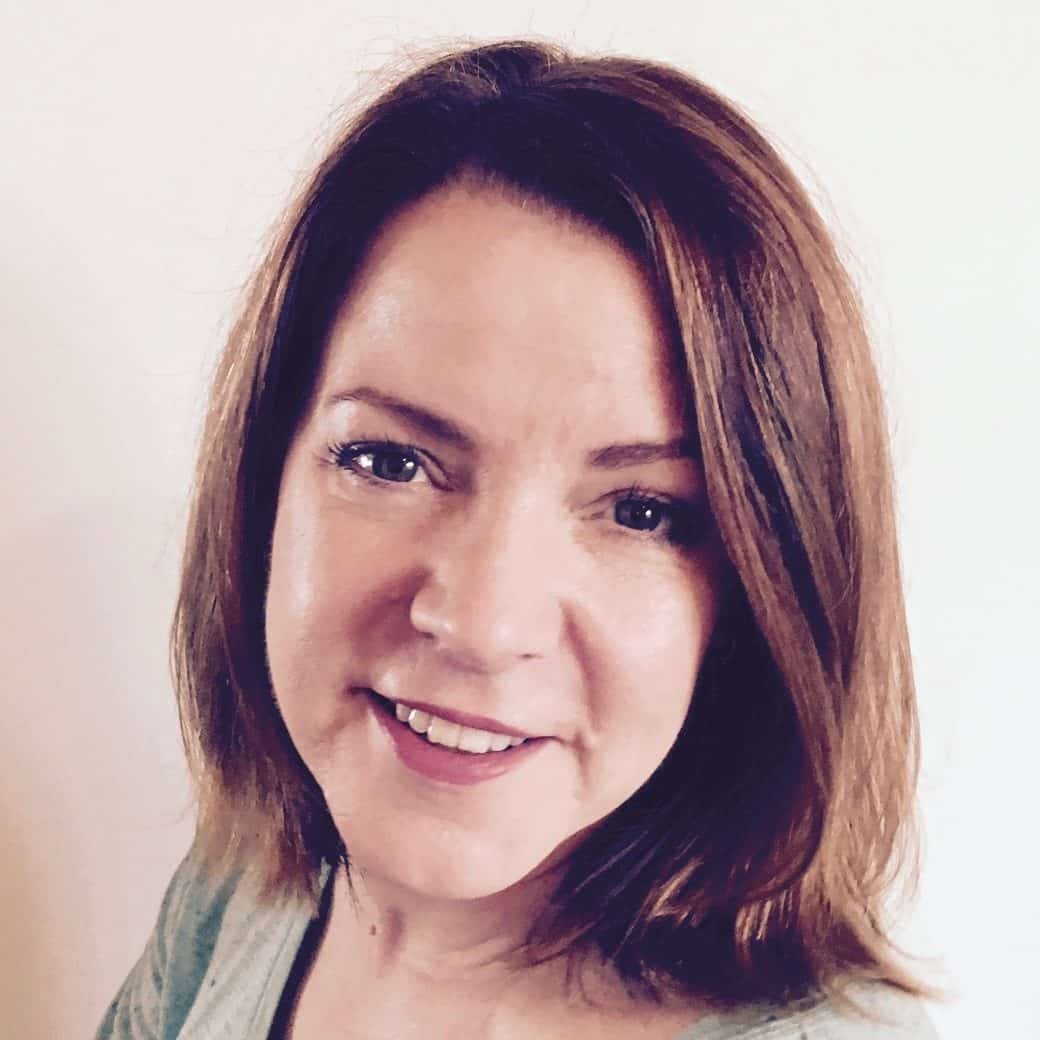Science only progresses as quickly and efficiently as it is shared. But even with all of the technological capabilities available today, the process of publishing scientific work is taking longer than ever.
ASAPbio (Accelerating Science and Publication in biology) is a scientist-driven nonprofit working to drive open and innovative communication in the life sciences. We promote the productive use of preprints for research dissemination and transparent peer review and feedback on all research outputs.

From Vale 2015
Vision
We envision a life sciences communication ecosystem where all papers and other outputs are shared rapidly and without restrictions on access or reuse, and open and constructive exchanges take place on research products at all stages.
Values
ASAPbio seeks to embody the following values and priorities through our projects, activities and community work:
Focus on researchers
Openness, equity, inclusion, and accessibility
Respect, empathy, and collaboration
Experimentation and adaptation to evidence
History

In 2015, ASAPbio founder Ron Vale published an analysis of the increasing time to first-author publication among graduate students at UCSF, and proposed a more widespread use of preprints in the life sciences as a potential solution. He recruited three fellow members of Rescuing Biomedical Research (Daniel Colon-Ramos, Harold Varmus, and Jessica Polka) to organize a meeting on the topic. Held at the headquarters of the Howard Hughes Medical Institute in early 2016, the meeting concluded with broad consensus among attendees (among them researchers, funders, and representatives from journals and publishers) that preprints could productively contribute to the research ecosystem. As follow up from the meeting, ASAPbio began serving as a dedicated organization to coordinate efforts promoting the adoption of preprints in the life sciences.
ASAPbio subsequently received grant funding, incorporated as a nonprofit, and, in 2017, initiated a second area of programming focusing on increasing transparency in peer review.
Team
Staff
Board of Directors
Alumni
Osman Aldirdiri, Board member, 2021-2023
Prachee Avasthi, Board member, 2018-2019; President, 2020-2024
Needhi Bhalla, Board member, 2020-2023
Jesse Bloom, Board member, 2020-2021
Phil Bourne, Board member, 2019-2021
Daniel Colón-Ramos, Board member, 2017-2020; President, 2020
James Fraser, Board member, 2017-2019; Vice President, 2020-2024
Tony Hyman, Board member, 2017-2020
Heather Joseph, Board member, 2018-2021
Harlan Krumholz, Board member, 2017-2018
Carole Lee, Board member, 2022-2023
Maria Leptin, Board member, 2017-2018
Mark Patterson, Board member, 2020-2021
Naomi Penfold, Associate Director, 2018-2020
Jigisha Patel, Project Coordinator, 2020-2021
Iratxe Puebla, Director of Strategic Initiatives & Community, 2020-2023
Madeleine Rostad, Summer Intern, 2023
Carly Strasser, Board member, 2017
Ron Vale, Founder, Board member and President, 2015-2020
Harold Varmus, Board member, 2017-2020
Richard Wilder, Board Member, 2017-2021
Cynthia Wolberger, Board member and Vice President, 2017-2021
Victoria Yan, ReimagineReview Registry Coordinator, 2018-2021
Approaches
Convening
We have gathered people through meetings and workshops, producing stakeholder perspectives on the roles of preprints, new ideas for peer review, and recommendations for preprint technology and metadata development. Where possible, we videocast our meetings to enable remote participation and complement in-person discussions with surveys (for example, on the benefits and concerns about preprints) and pre-meeting commentaries on preprints and peer review.
Community building
We work with a community and Fellows who act as local points of contact in their institutions and fields. Since 2016, over 130 researchers have joined us and organised discussions and campaigns in their local communities. We offer support and guidance to help community members bring preprints to new research fields, institutions, and locales. We invite you to join!
Resource development
We act as a hub for information about recent policy developments and in-depth coverage of key issues. Our preprint FAQs have been viewed by over 5,000 users, and we continue to add resources to explain preprint licensing, showcase funders who support preprints and identify journal policies that encourage their use.
Advocacy
We call for more progressive policies on publication from funders, universities, and journals. For example, over 350 journals have signed our open letter to call for the publication of peer review reports and subsequently updated their practices. This shows that many journals already support transparent peer review and is a strong call for other journals to consider this too.
How we work
Grants and Contributions
Preprints
Preprints accelerate the progress of science by enabling researchers to disseminate their results to one another months or years ahead of final journal publication.
From 2016-2018, our work was supported by the Alfred P. Sloan Foundation, the Gordon and Betty Moore Foundation, the Laura and John Arnold Foundation and the Simons Foundation. Starting in 2018, our work on preprinting has been supported by our Member Advisory Group.
Peer review
Peer review is regarded as an essential feature of scientific publication, but it is shrouded from public view. We believe that increasing the transparency and portability of peer review will lead to a robust and efficient publication system.
Our peer review work is supported by a grant from the Leona M. and Harry B. Helmsley Charitable Trust.
Services
Consulting
We are pleased to offer consulting services on mission-aligned projects related to preprints and open peer review.
For example, in 2020-2021, ASAPbio partnered with the Chan Zuckerberg Initiative to identify shared technology needs for preprints. We conducted user interviews, identified and consulted with key services, and hosted an online workshop (see report).
Workshops and trainings
We offer sessions on preprints, peer review, and the scientific publishing ecosystem suitable, for example, for NIH training grant Responsible Conduct of Research (RCR) classes. We are also available to provide workshops to librarians, students, and researchers.
For more information on the above, contact Executive Director Jessica Polka (jessica.polka@asapbio.org).
Strategic goals
Drive adoption of preprints & other approaches to early research sharing
- Develop resources that communicate the value of preprints and progress in adoption across life sciences and tailor resources to the needs of individual communities and different stakeholders
- Collaborate with research groups who are exploring preprints and their value
- Develop metrics to evaluate progress in adoption at discipline and geographical level
- Focus on supporting underrepresented fields, regions and/or demographic groups where ASAPbio can bring the most impact to support preprint adoption
- Support modalities for the early and rapid communication of all scholarly outputs, including shorter preprints and other research objects
Maximize the value of peer review as scholarship
- Support approaches to maximize efficiency in the communication, sharing and reuse of reviews, to accelerate assessment of research works and reduce reviewer time/resource waste.
- Work on initiatives that support the review/input on all research outputs (preprints, early papers, journal articles etc) and at all stages of their communication (i.e. both within and outside journal publication)
- Explore avenues to provide visibility to reviews/commentary via quantitative tracking of activity, outreach that communicates their value in science communication and support of meta-research into review and commentary of all research outputs.
Communicate the principles of the future of science communication we aim to achieve
- Articulate the principles and values that we feel need to guide the future science communication and share these publicly
- Use these principles as guide for how new initiatives, projects or tools in science communication align to our vision and goals as an organization, and to help us prioritize potential collaborations.
Grow reach of ASAPbio Community and empower Community members
- Proactively work to ensure broad representation in our community and organization groups (e.g. Board of Directors) and address gaps in representation (e.g related to race, geographical location, language, career stage)
- Deliver programs that empower members of the community to further communicate our mission and principles such as the Fellows program, Community calls and workshops targeted at specific disciplines or stakeholder groups
- Seek collaboration with local communities as well as others in the science communication space
Keep in touch
Want to stay up to date on ASAPbio’s work? Please subscribe to our newsletter.
Recieve the latest news about ASAPbio, preprints, and open peer review every 1-2 months. Your email will not be shared. Review our privacy policy.













